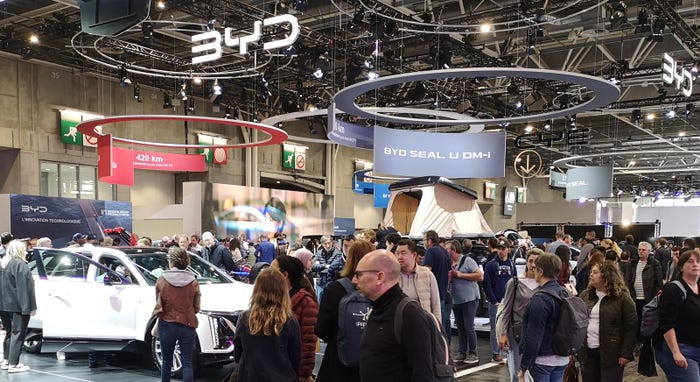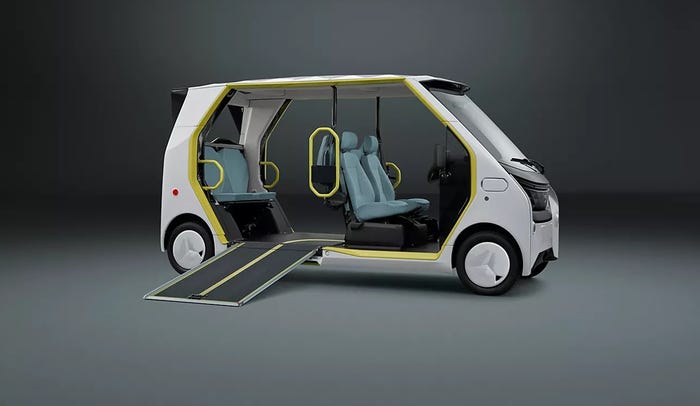VW Scandal May Open Door to Sustainable-Mobility Future
Cheating on emissions isn’t new to the industry, says Guido Palazzo, a professor at Lausanne University. “All car producers cheat in various shades of gray.”

VENICE, Italy – Volkswagen’s emissions scandal is one symptom of an industry focused on the bottom line at the expense of ethical practices, says a leading expert on global sustainability.
“This scandal is just the surface of a much deeper problem that concerns the whole industry,” Guido Palazzo, a professor at Lausanne University and director of its strategy, globalization and society department, says in an address here at the International Symposium on Sustainability at Venice International University.
“What we are facing right now is the meltdown of the credibility of a whole industry that tried to go on with business as usual as long as possible in a fast-changing world.”
Comparing the actions of VW engineers to the doping scandals that stripped Tour de France cyclists of championships, Palazzo argues that if everyone is cheating on some level, then cheating isn’t seen as wrong but merely a way of leveling the playing field.
“The same might apply to the Volkswagen engineers: They had good reasons to believe that all car makers manipulate diesel emissions.” Palazzo says.
Palazzo notes cheating on emissions isn’t new to the industry, but dates back as far as 1973 when VW was caught violating pollution standards. He cites examples including: a 1995 fine levied against General Motors for circumventing pollution controls on 470,000 Cadillacs; a 1998 case in which truck-engine producers including Caterpillar, Cummins, Detroit Diesel, Mack Trucks, Navistar International, Renault Vehicles Industrials and Volvo Truck paid fines for use of software to fake test results for emissions. There also were 1998 settlements involving Honda and Ford for selling cars with systems designed to defeat emissions control systems and, finally, last year’s case covering overstated fuel economy figures by Hyundai and Kia.
“All car producers cheat in various shades of gray,” Palazzo contends. “Volkswagen engineers and managers probably made their decisions under this impression and just tried to be a bit cleverer than the others.”
Palazzo adds that VW wasn’t the only company whose vehicles were found out of compliance on emissions in the study that led to the VW scandal. The study shows Mercedes-Benz, BMW, Citroen, Peugeot, Renault and GM vehicles also significantly deviated from EPA standards.
“There is no evidence that those companies cheated as well, but (for) decades the whole industry has a gaming attitude when it comes to emission tests,” Palazzo says. “Cheating in various shades of gray is as endemic in the automotive industry as is corruption in the FIFA (the federation that governs international soccer) and doping in cycling. It is not a deviation from the norm, it is the norm. This is not only a legal problem, it cuts deep into the credibility of the overall sustainability claims made by the automotive industry.”
Containing costs, maintaining profits, growth pressures and VW’s corporate culture – characterized in media reports as “North Korea without the concentration camps” – all also contributed to the emissions scandal, Palazzo says.
“One could ask why an engineer did not simply go to the CEO (Martin) Winterkorn and tell him that they had technical problems,” he says. “Well, Volkswagen does not have a culture of open discussion.”
Against a backdrop of discussing green practices in the automotive industry, Palazzo says the VW scandal should serve as a wake-up call and an opportunity for the industry, as well as government regulators, to improve their environmental efforts.
“I am convinced that now a strategic window is opening to dare a bolder move into the future, to really lift sustainability to the level of top corporate decision-making,” Palazzo says. “Sustainability is here to stay. The automotive industry acted under a fundamental misunderstanding so far, even if we left the cheating aside for a moment: To be sustainable has nothing to do with putting effective filters over traditional engines, it rather requires a revolution of the whole concept of mobility. If companies just cure the symptoms of the problems they create, they are not sustainable.”
About the Author
You May Also Like



.jpg?width=700&auto=webp&quality=80&disable=upscale)

